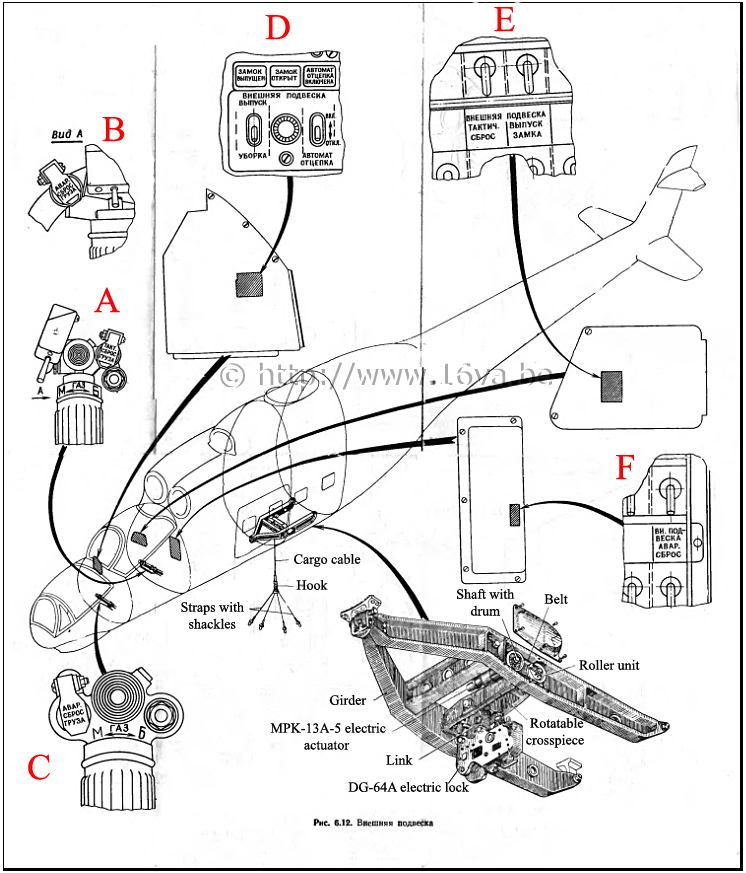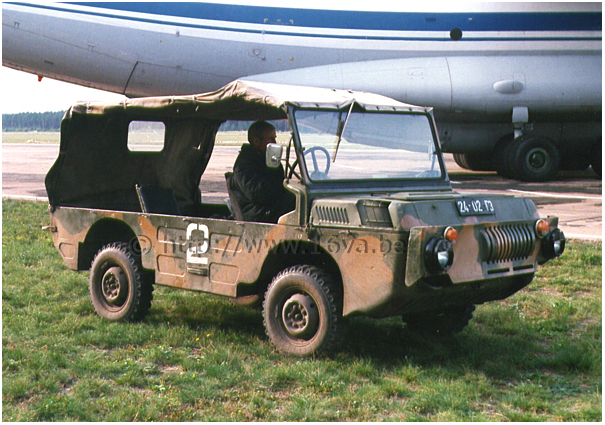

A : Pilot's collective pitch stick with throttle control, front view:
> tactical load release
B : Pilot's collective pitch stick with throttle control, left side:
> emergency load jettison
C : WSO's collective pitch stick with throttle control:
> emergency load jettison
D : Panel on the pilot's instrument panel:
> status light, top left: DG-64 hook in extended position
> status light, top center: lock of the hook open
> status light, top right: load jettison safety switch is on
> switch bottom left: up = hook extended
down = hook retracted (flush under the fuselage)
> switch bottom right: load jettison safety switch ON (up) / OFF (down) - to prevent an accidental load jettison
The circle in the center had no function
E : Flight engineer's instrument panel:
> left switch: the lock of the hook can be closed (when a sling is attached to the hook)
> right switch: opening of the lock (to jettison the sling)
F : Flight engineer's instrument panel: emergency load jettison
The DG-64A hook is illustrated here in working position. When not in use, it pivoted backwards to be stored flush with the fuselabe bottom.

LuAZ-967 light amphibious 4-wheel drive vehicles (950 kg empty) were part of the helicopter unit motor pools. They were sometimes carried under sling by the Mi-24s during the Combat Training Courses (KBP). This one was photographed at Mahlwinkel. © KH Feller.
